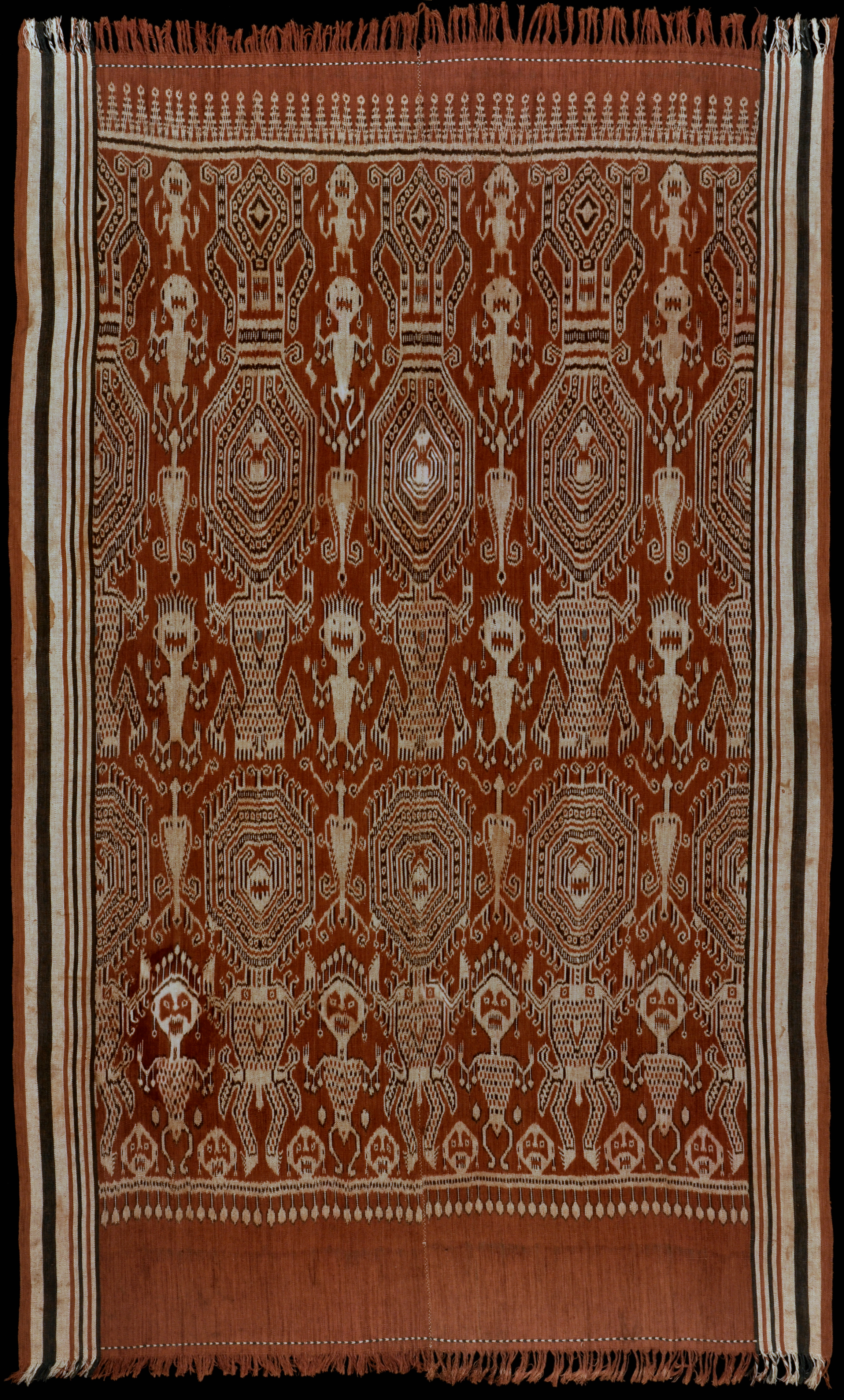| |
 mouse over to magnify mouse over to magnify
| | | | 075 Borneo, Sarawak
Pua kumbu
| | Locale: | Iban Dayak people, probably from the Batang Ai. | | Period: | 1935-1950 | | Panels: | 2 | | Design: | Large anthropomorphic figures with labyrinthine faces. They represent giant, dream envisioned ghostly creatures of power, protection and influence that are often associated with deities or one's ancestors. The bottom row shows female figures with elaborate head-dresses who are dancing while holding skulls, with other heads lying at their feet. The heads of the main figures are exaggerated, which suggests that the design is the weaver�s interpretation of the Gajah Meram (see PC 074). | | Size: | 139 x 227 cm (54.7 x 89.3 in) | | Weight: | 1280 g (406 g/m2) | | Yarn: | Cotton, hand-spun, coarse | | Comment: | Large old Iban pua with many human figures and powerful headhunting associations. Fine and tight weaving of the intricate design with 4-fold repeat per panel (3-fold repeats being far more common), panels well aligned. Heavy cloth, triple weft. Some smudging, but mostly limited to the borders. | | Background: | Additional information in chapters on Borneo and Sarawak. | | Published: | Woven Languages, 2014.
HALI 181/2014.
Ikat Textiles of the Indonesian Archipelago, 2018.
| | Compare: | 001 123 | | Sources: | Similar to pua dated 1900-1930 in Fine Arts Museum of San Francisco Nr. 2002.108.8; and to one in Fraser-Lu, Handwoven Textiles, p.145 Fig. 175, p.146; as well as to one in Yoshimoto, Ikat, Fig. 84. Similar figures with radiating heads, identified as buah Nising, demon figure patterns, on pua in Gavin, The Women's Warpath, Plate 30. This identification is contested by Kedit as the defeated Nising is never portrayed with a head; or if he is, then with a diminutive head, because he was decapitated by Sengalang Burong, as recounted in the Gawai Burong chants. Nising and Antu Gerasi are the same person. In the Iban pantheon this demon goes by several different names. | | |
 ©Peter ten Hoopen, 2025
All rights reserved.
|
|


